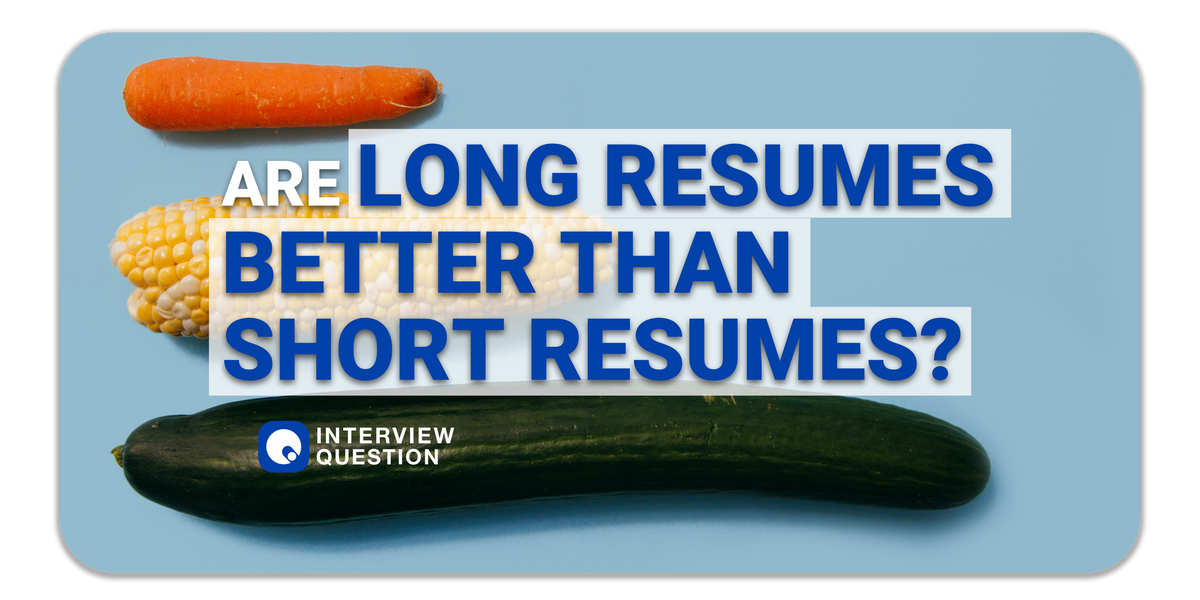Are Long Resumes Better Than Short Resumes?
Quick Take | The Case for A Long Resume & When You Should Use It | The Short Resume Alternative | The Bottom Line: Longer Isn't Always Better

One of the most common job-hunting strategies is to develop a long resume rather than a short one. Is this strategy effective?
Quick Take & Conclusion
Yes, but not necessarily better than the approach of creating a short resume. On the contrary, some research suggests that a long resume is more likely to put off hiring managers because it takes too much time to go through. The short resume, on the other hand, is feasible for busy individuals who want to get their foot in the door quickly.
So does this mean that you should avoid long resumes? Absolutely not! It's also important to remember that while this tactic may not be ideal for everyone, it sure beats having no personable impression on future employers.
The Case for A Long Resume & When You Should Use It
Having a long resume can be an advantageous strategy if you are just starting out in the job market. It will give hiring managers a better understanding of your background and can help secure interviews that could eventually turn into the job offer.
While it may be possible to skip over your work history altogether, having concrete experience on your resume can be helpful if you're applying for a position that is similar to the one you've held before or if you want to present yourself as more qualified for the position.

A long resume is also effective for individuals who have experience in many different fields or who have extensive leadership roles at their previous places of employment. Explaining in greater detail on paper allows for a more in-depth understanding of your experience and can help hiring managers decide whether you're the right fit for the job.
The Short Resume Alternative
A short resume may be more preferable when you're currently employed and don't want to make it seem like you're looking to make a career change or if you want to keep job searches (or looking for a new job in general) private and separate from each other. In this way, you are making your resume, and hence your application, extremely specific by including only the relevant information and omitting everything else that may be perceived as fluff.
Again, if you choose this route, make sure that the employer is aware of the gap in employment, education and any other details of lapses in the chronological flow of your resume. Informing your potential employer of the gaps is important so they don't think you were fired or laid off for a poor reason, or even imprisoned!
Furthermore, a short resume can be a great option if you have a lot of gaps in your professional history. By excluding the time during which you were searching for jobs, working part-time jobs or doing anything other than working at your career field, you can make it appear as if your job search was instantaneous and as if you had been working steadily the entire time. Taking this approach will help reveal to hiring managers that you are dedicated to achieving success and that their business would be lucky to have you on board!
The Bottom Line: Longer Isn't Always Better
Ultimately, there is no hard-and-fast rule that says a long resume is always better than a short one. It truly depends on your situation and your goals. The long resume can certainly be just as effective, if not more so, than the short resume, but it's also true that sometimes a short resume can work to your advantage. Make sure that you do your research and find the method that works best for you!

